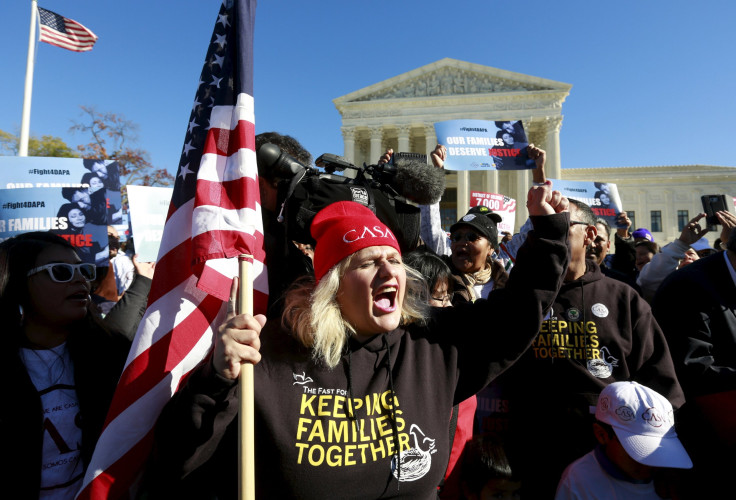
Los Angeles, Calif. — Supporters of Obama’s executive orders on immigration heralded the Supreme Court’s decision on Tuesday to review a Republican challenge to the actions that has frozen aspects of the program since February of 2015. Immigration advocacy groups based in Los Angeles joined representatives of the local mayor’s office as well as Congressional leaders to celebrate the decision, which they say will provide short and long term political benefits to the cause of immigration reform. After a string of setbacks for immigration advocates, including a spate of targeted raids across the country, Coalition for Humane Immigrant Rights of Los Angeles Executive Director Angelica Salas says that the Supreme Court announcement brings them hope.
“Today there is a ray of sunshine,” Salas said in a telephone press conference with reporters.
Short term, advocates like Salas have won renewed hope that president Obama can implement DAPA, a program that would give temporary work permits and deportation reprieve to an estimated 4 to 5 million immigrants. That’s an important moral boost for an interest group that’s faced demoralizing decisions this year from the courts, and open season on immigrants from an increasingly bold GOP field.
But the Supreme Court’s decision to look at Texas et al v. U.S. gives immigration advocates more than mere moral. It is also bound to bring attention to the plights of individual immigrant families as a part of the arguments. Regardless of the judicial outcome, that’s a political present for Democrats like Rep. Tony Cárdenas (CA-D-29th), who also spoke on the call.
“When we see [DAPA implemented] I think and hope we will see congress [take up] comprehensive immigration reform [again],” he said.
Supporters of Obama’s executive actions are looking for a win at the Supreme court. But a decision in their favor will only affect a limited amount of undocumented immigrants (less that half of them) for a short amount of time (about six months between the decision, expected in June, and Obama’s last day in office) after a 2-year delay caused by the lawsuit.
“Having a positive result from the Supreme Court would really put to rest a lot of the arguments being put forwards,” Salas says “but also having families coming forward and sharing their stories [during the proceedings]. What we have seen is that these young people are incredibly generous in terms of their talents and their spirit and making the country greater.”
In other words, the Supreme Court might help immigrants in the country illegally in rhetorical ways just as much as they’ll help them legally, and that could have a serious affect on the outcome of the 2016 presidential election this November.
Why The Supreme Court Case Is A “BFD” For 2016
The political charge of the debate has led some to question the wisdom of taking the case in the first place. In a piece for Bloomberg View, Noah Feldman outlines the politicized baggage that the Supreme Court has loaded on its docket by accepting the case.
“Imagine the pressures on Justice Anthony Kennedy, who might well be the swing vote again. Supporting executive power might be misread as support for the Democratic candidate, which Kennedy would abhor,” Feldman writes, “Or holding against the Obama administration might be seen as supporting the Republican candidate, which Kennedy, to his credit, would abhor equally.”
Salas’ and Cárdenas’ glee at the Supreme Court accepting the case may bolster Feldman’s argument. If their side does prevail, they’ll be the first ones to lord it over their opponents, and rally support for a Democratic candidate (now that pro-immigrant blood has drained from the cheeks of Republican contenders for the party’s nomination).
So is the timing politically unfair, to Republicans and to the Supreme Court’s reputation?
“I think that it's the job of the court to deal with legal issues as they come up,” says UCLA Law Professor Hiroshi Motomura in a phone interview with the Latin Times (not on the conference call), who believes that Obama’s actions were legal.
To truly be politically neutral, Motomura argues, the court shouldn’t be watching the electoral calendar anyway.
© 2025 Latin Times. All rights reserved. Do not reproduce without permission.




